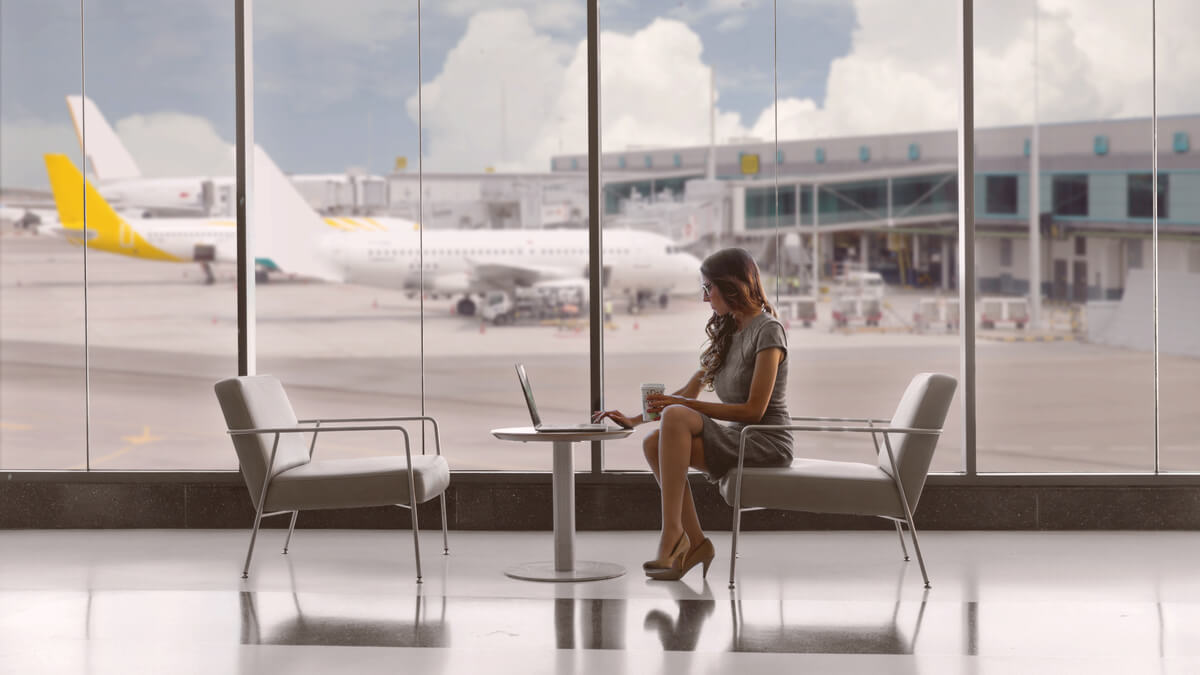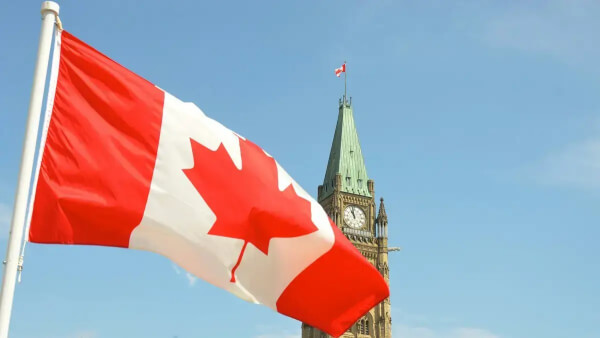Canada Tax Codes Explained - Guide for UK Employers
Check out our guide on Canada tax codes. Get to grips with tax codes by province, federal income tax rates in Canada to help with international employees.

Taking a business trip soon? Depending on where you’re going, and the nature of your visit, you might need a business visa. Visa law is notoriously complicated, and getting the paperwork you need might take a bit of time and planning. It pays to do your research early, to make sure you know what is needed for your business travel, and avoid any immigration headaches down the line.
To get you started, we’ve provided a rundown of the typical visa requirements for a range of countries commonly visited by Brits for business purposes. You can dive in deeper by following the links to more detailed guides - and don’t forget to think about the best ways to pay your visa fees and cover the costs of your trip. Using low cost international payments from Wise can be a great way to save time and money - and make sure your business trip goes smoothly.
The countries we’ll cover are:
When you have to pay employees or suppliers overseas it might seem logical to do this with your bank. You already have an account there, they have all your information, so it just seems easier. Although these are valid reasons, easier certainly doesn’t mean cheaper.
Most banks won’t convert your money with the mid-market exchange rate when you make an international payment. Instead they add a mark-up and charge you a hidden fee that way. Wise is different. Its smart technology skips hefty international transfer fees by connecting local bank accounts all around the world. Which means you can save up to 8x by using Wise rather than your bank when you send your money abroad.
Wise also has a lot of additional features for business users. You can connect with Xero to make your life easier, upload a batch of payments in one go or even automate your payments by integrating with our API. And there’s more to come in the future.
If you’re planning a business trip to the US you’ll need to get either a visa - usually a B1 visa type - or an ESTA, which is the document required to prove you’re eligible to travel visa free to the US.
You can start the application process for either online, and there will be a fee to pay - USD14 for an ESTA and usually USD160 for a visa. If you aren’t eligible for visa free travel, or are planning on being in the US for over 90 days, you’ll need to leave time to attend an interview, and then for your visa to be processed - this can take up 2 to 4 weeks, or longer if there’s high demand for consular services at the time you apply. Learn more with this guide to getting a US business visa.
Russia offers a number of different business visa types, including 90 day short stay options, and visas valid for 6-12 months which offer multiple entries into the country. For all visas, you’ll need to start your application online, gather documentary evidence of your eligibility and plans, and attend a visa application centre to give biometric data and show your paperwork. More about the visa types available, and a rundown of the process to apply, in this overview of Russian business visas.
If you’re applying for a Russian business visa, you’ll find you need to prepare a number of documents, including an official invitation letter, and full details of your plans while you’re in Russia. If you struggle to get all the paperwork together, you can work with a professional visa agent, who will walk you through the process for a fee.
Need an Australian business visa? If you’re heading to Australia for business purposes, but won’t actually be doing any paid work while there, you might be able to apply for an eVisitor visa or ETA (Electronic Travel Authority)
ETA and eVisitor visas are usually processed in just a couple of days, but it’ll take longer to arrange your full business visa. You may be required to attend an interview at the Australian Embassy, and you’ll need a broad range of documents to support your application. The prices for these options are also quite different - an ETA is likely to cost only around AUD20 to process, while some business visas could have fees totalling almost AUD5,000. Make sure you choose the right visa option for your needs, and avoid paying more than you have to.
Business visitors to Turkey can apply online in advance for a 90 day business visa. This makes entry into Turkey straightforward, although you can also apply for this visa type on arrival if you need to.
Turkish business visas are good for people visiting for professional purposes, but do not cover paid employment. If you intend to work - and earn - while you’re in Turkey you might find you have to get a work visa through your local consulate instead. To apply for a Turkish business visa you’ll need to have a valid passport, and show you’ve booked your return flights as evidence you don’t intend to overstay. You’ll also have to show you have enough money for the visit, and have planned your accommodation. Full details are in this guide to business visas for Turkey.
If you’re a British citizen and need to travel to India for business, you can apply for either a business visa or a business e-visa. The e-visa has some limitations compared to a regular visa, but you’ll be able to arrange it entirely online with no need to attend an interview.
Business visas are usually issued for stays of up to 180 days, and can be valid for as long as 10 years. An e-visa on the other hand has a 60 day cap and doesn’t allow you to leave and re-enter the country more than once. To learn more and get help choosing the right visa for you, check out this comprehensive guide to Indian business visas.
Brits travelling for business purposes to Canada for 90 days or less will usually need an Electronic Travel Authorisation (eTA) with longer visits requiring a visa. You can apply for your eTA online and get an answer in anything from a few minutes to 3 days, although getting a visa may take a little longer. In either case you’ll need to gather a set of documents to show what your plans are while you’re in Canada, including your itinerary and proof of your ability to pay for yourself while you’re in the country.
Don’t forget that business travel is strictly defined, and can’t include undertaking paid work while you’re there. Meeting clients, looking for investors or conducting site visits should be covered by a business visa, but if you intend to do paid work while you’re there, you may need a work permit instead. Get all you need to know about the Canadian business visa process, in this guide.
The Schengen Area covers 26 countries in Europe, allowing people to move freely within this area under one single visa. This can be very handy if you’re planning on visiting several different countries during the same trip. Usually British citizens won’t need a visa to enter the Schengen Area - but you might need to apply for a visa if you’re a third country national.
Visas are usually issued for up to 90 days, and processing times are typically around 10 days. Apply up to 3 months prior to your visit to make sure everything is arranged in good time.
The process for applying for your Schengen visa will depend on exactly where you intend to go during your trip. In general terms you’ll have to apply at the embassy of the country you’re planning on spending the most time in during your visit, and each embassy may have a slightly different process for arranging Schengen visas. Check the details online before you plan your trip. Get your research off to a good start with this handy overview of Schengen Area business visas.
China is one of the world’s largest economies, and so it’s no surprise that every year a large number of Brits visit for business purposes. If you’re planning on heading to China for work, you’ll need a visa to do so. There are several different visa types, depending on the specific details of your trip. You may need a M class, R class or Z class visa, which cover visits for commercial purposes, and work, including special visas for people with skills urgently needed in China.
To get your visa arranged you’ll need to visit a Chinese visa application centre, and provide documents and fingerprints. You may also have to have an interview or confirm your signature, so make sure you have enough time before your business trip to get everything in order. Get the full lowdown on how to get a Chinese business visa in this A to Z guide.
If you’re coming to the UK for work, you might need to get a visa to cover your visit. It can take a couple of weeks to go through the visa application process, and you’ll be required to visit a visa application centre to hand over paperwork and give your biometric data. There are a few different business visa types available, depending on your needs. A standard visa lasts for 6 months, but you can also apply for a multiple entry visa which can last for anything up to 10 years, allowing stays of up to 6 months at a time. Need more detail? Here’s your full guide to UK business visas.
No matter where you’re headed for your business trip, it’s a smart plan to check whether or not you need a visa. The rules and processes followed do change over time - so some advance planning can help you avoid any nasty surprises. Don’t forget to also think about how to manage your money while you’re away. Paying your visa fees, arranging your hotel and getting local cash from ATMs while you’re on the move can all be made easier if you have a Wise borderless account. See if Wise can help you save money on your international business travel, today.
*Please see terms of use and product availability for your region or visit Wise fees and pricing for the most up to date pricing and fee information.
This publication is provided for general information purposes and does not constitute legal, tax or other professional advice from Wise Payments Limited or its subsidiaries and its affiliates, and it is not intended as a substitute for obtaining advice from a financial advisor or any other professional.
We make no representations, warranties or guarantees, whether expressed or implied, that the content in the publication is accurate, complete or up to date.

Check out our guide on Canada tax codes. Get to grips with tax codes by province, federal income tax rates in Canada to help with international employees.

Looking to scale your business in Scotland? Check out this guide to business grants in Scotland from start up funding to government business grants and more.

Seeking funding for your business? This guide signposts what grants are available for small businesses in the UK and tips to help ensure application success.

Looking to scale with a business grant? This guide outlines opportunities for business grants in Wales - from start up funding to Welsh government grants.

If you’re a UK employer with employees in Germany, check out our guide on German tax codes. Learn about tax laws in Germany, income tax brackets and more.

Considering starting a business in Croatia? Read this guide on Croatia company registration. Learn how Wise could help you save when doing business in Croatia.